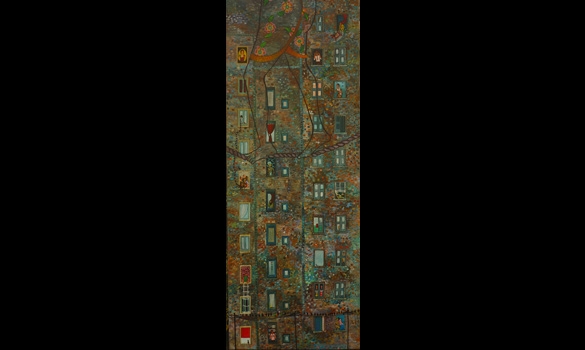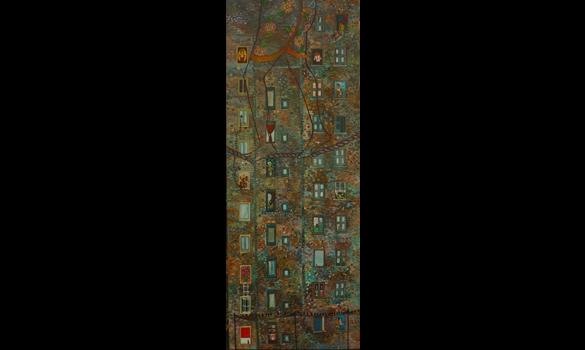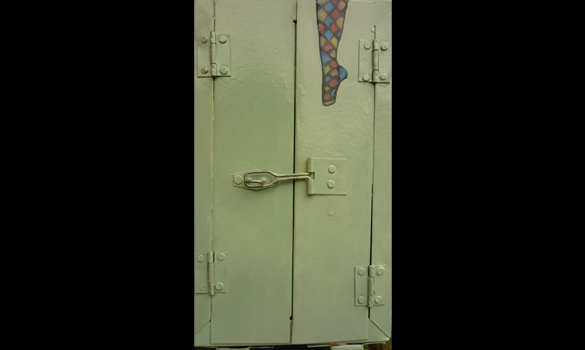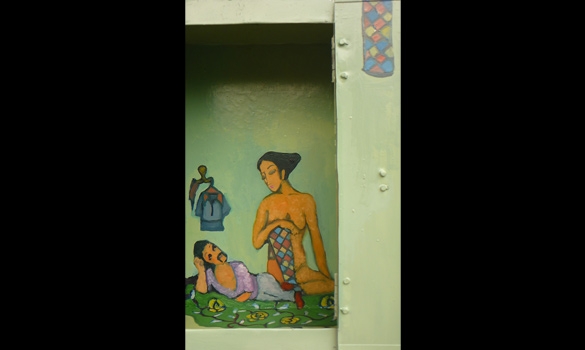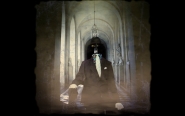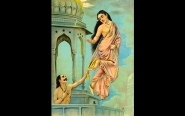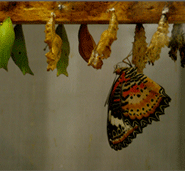Some worlds you fold away and carry in your pocket. Like an origami bird, a leaf from last year’s autumn, an unsigned postcard saying, ‘wish you were here’. Some worlds are slim and secret, lying in wait between the pages of a book, springing twists and turns and mighty surprises. Others unfold in your head, a glass marble holding an infinite sea-green universe. Some worlds visit you in your childhood, coming and going like the wind, gracing you with their magic, filling your dreams with rainbow colours, sweeping you away in breathless swirls, and then just like that, they’re gone. You wake up to an empty field, the quietness of trampled grass, a wooden gate left ajar.
As a little girl, Baaraan Ijlal wanted to run away and join the circus. The circus that set up every winter on a field behind her house in Bhopal. That kept her awake at night as she listened to strange, mysterious sounds that drifted through her window – music and laughter, the murmur and stamp of animals, the tinkle of bells, the snap of a whip. It was far removed from her everyday – the dull routine of school and homework, of meals and bath times. The circus people had their own rhythms that seemed to move out of sync with everything she knew and understood. Somehow, it was a freedom that belonged especially, exclusively to them. For circuses are their own world. Removed from us by a witch’s circle. Appearing out of nowhere and vanishing with the dawn. In Baaraan’s circus series, Stitched Wings, we are wide-eyed children sitting on the edge of our seats, breathing in the dusty, sawdust air, enveloped by the magical darkness of the Big Top, watching the space before us transform into something fluid, dextrous and extraordinary. Her paintings are fantastical large-scale casements – in one, we are seated behind a wing-decked acrobat waiting to perform, in another we are privy to a group photograph of jugglers and clowns and little people, the canvas entwined by long golden floral patterns. At heart, the circus is a place of stories – of travel and ragtag nomadic flights, of carnivalesque joy and careful performance, of sad/smiling faces and masks, masks, masks. It is a mythology we all willingly buy into and sell. Like pamphleteers on street corners.
Baaraan tells her stories in multiple ways – one painting is an aerial view of a gigantic truck that holds all the performers, it is larger than any other vehicle travelling on the road, it is larger than life. Another work is a full-frontal façade shot of a building with never-ending storeys with a face (or none) at a window, all these intricate, interweaving lives. Her colours are jewels, rich and glossy, her people broken and beautiful. And if paintings aren’t enough, the series also comprises a wall of miniature almirahs collectively called House of Commons – each painted inside and out. As a viewer you are invited to open them, to peer into a different world, to guess, to wonder, to marvel, to be privy to a secret, each one a cage, a container, a safety net.
For the artist, Stitched Wings is the first major bulk of her work, and apart from being vibrant and vivacious, it is also quietly cathartic. As though she were releasing a memory – distorted by time and distance – onto a canvas. Through painting them she made them her own, in tiny strokes of wish-fulfilment, claiming, for a moment, their colours and their lives. So she could move on, and leave the performance behind. Yet even if, like childhood playthings, the paintings are put away, one secretly knows that at the stroke of midnight they come to life and wander most carelessly into our dreams.
Janice Pariat is a writer from Shillong, currently living in London.
Baaraan Ijlal was born in 1976 and is a Delhi-based artist and illustrator from Bhopal.
Editor's Note.
Mythological Art and the Creation of Sacred Narratives
As a child, I was told stories such "lying down and eating will make your food go into the donkey's stomach" or "if you swallow a watermelon seed, a watermelon tree will grow inside you". There I was, sitting upright, imagining a miniature donkey drool in hunger.
Read MoreAs a child, I was told stories such "lying down and eating will make your food go into the donkey's stomach" or "if you swallow a watermelon seed, a watermelon tree will grow inside you". There I was, sitting upright, imagining a miniature donkey drool in hunger.
Also in this issue
Illusion: Seeing Beyond Seeing
Meaning: In Search of Significance.
Melody: A Different Tune
Rhythm: Ordering Time

